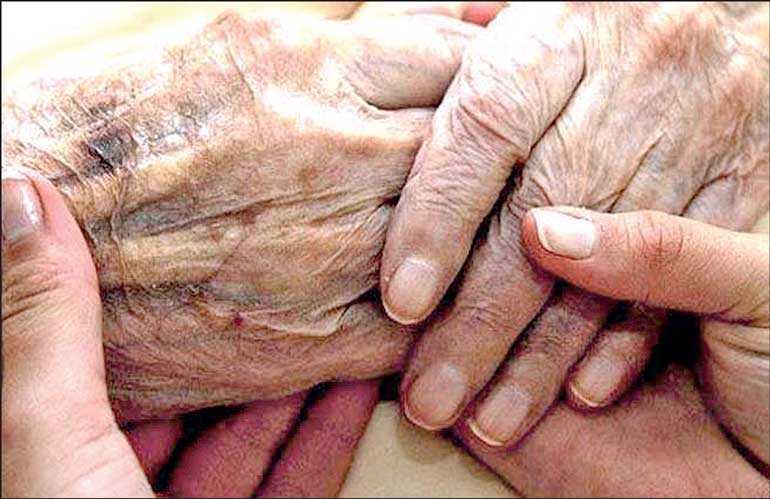Wednesday Feb 25, 2026
Wednesday Feb 25, 2026
Friday, 4 October 2019 00:00 - - {{hitsCtrl.values.hits}}

Populations across the WHO South East Asia region are ageing. Whereas in 2010 older people accounted for 8% of the region’s population, by 2017 they accounted for 9.8%. That number will continue to rise, with older people expected to make up 13.7% of the population by 2030 – or 289 million people – and a significant 20.3% by 2050. 
Though the proportion of older people in the region is projected to remain below global levels, the speed of the region’s demographic transition is faster.
Action is needed to ensure all older people can access the health services they need, when they need them, without financial hardship. The health issues older people face are diverse. In addition to the increased risk of non-communicable diseases (NCDs), older people encounter challenges around mental health – including dementia – and greater incidence of injuries and disabilities due to declining functionality. As the number of older people grows, the demand for primary care services that can screen, assess and manage clinical and functional comorbidities is increasing. That is likely to continue as urbanisation proceeds and family structures change.
As the region strives to achieve universal health coverage, which is one of eight Flagship Priorities, there is a clear need to accelerate health equity for older people. To do that, the Region’s Framework on Healthy Ageing must be fully leveraged, with a focus on several priority interventions.
First, health authorities should strengthen the capacity of primary level services to respond to the health needs of older people in an integrated manner. WHO’s Integrated Care for Older (ICOPE) People training manual provides comprehensive guidance on how primary healthcare providers can screen, assess and manage a range of health problems, including diseases, mental health issues and functional impediments. It is imperative the ICOPE is fully harnessed.
 Second, when older people encounter complications or limits to their mobility due to falls, NCDs, dementia or nutrition-related problems, access to key services – including specialised care – is needed. While the focus should be on ensuring older people can stay independent and healthy in their homes, long-term care that is close to where they are from should be accessible and of adequate quality. The provision of palliative care, including end-of-life care, should be enhanced as a matter of priority.
Second, when older people encounter complications or limits to their mobility due to falls, NCDs, dementia or nutrition-related problems, access to key services – including specialised care – is needed. While the focus should be on ensuring older people can stay independent and healthy in their homes, long-term care that is close to where they are from should be accessible and of adequate quality. The provision of palliative care, including end-of-life care, should be enhanced as a matter of priority.
Finally, to promote healthy ageing, advocacy campaigns should be developed and rolled out region-wide. As people grow older they should be reminded that they can do so in a way that allows them to continue to contribute to society. In addition, an increased focus should be given to building age-friendly infrastructure that promotes older people’s independence.
On the International Day of Older Persons, we must reflect on the need to accelerate health equity for older people and ensure their right to health is respected, protected and fulfilled and that society continues to benefit from their participation and input. WHO is committed to supporting the region’s member states achieve both outcomes and advance their quest to achieve universal health coverage and leave no one behind.